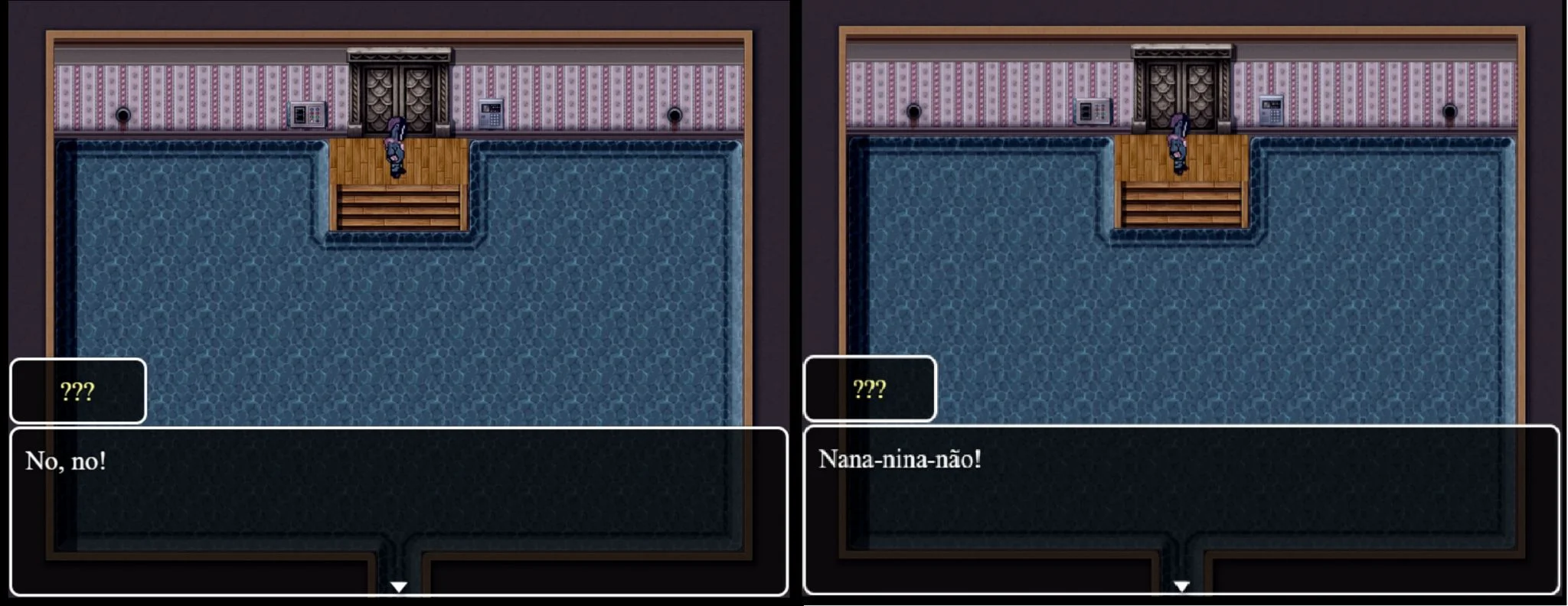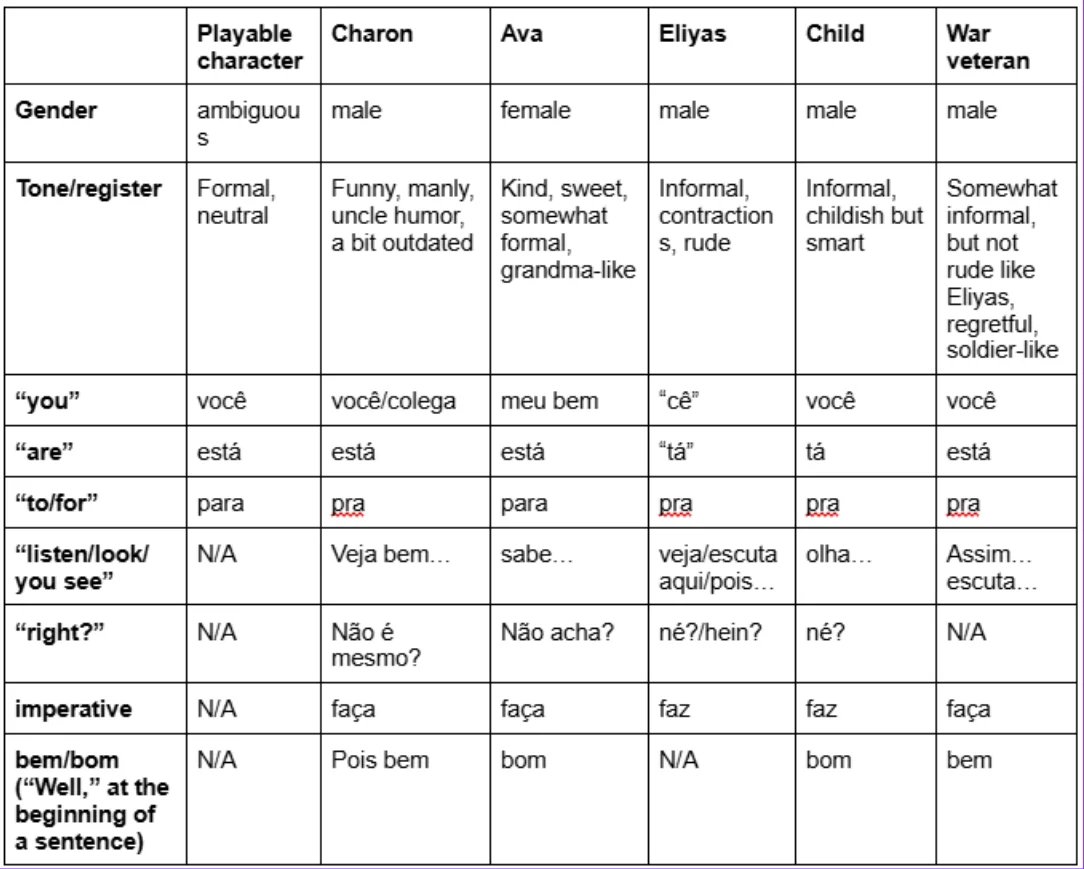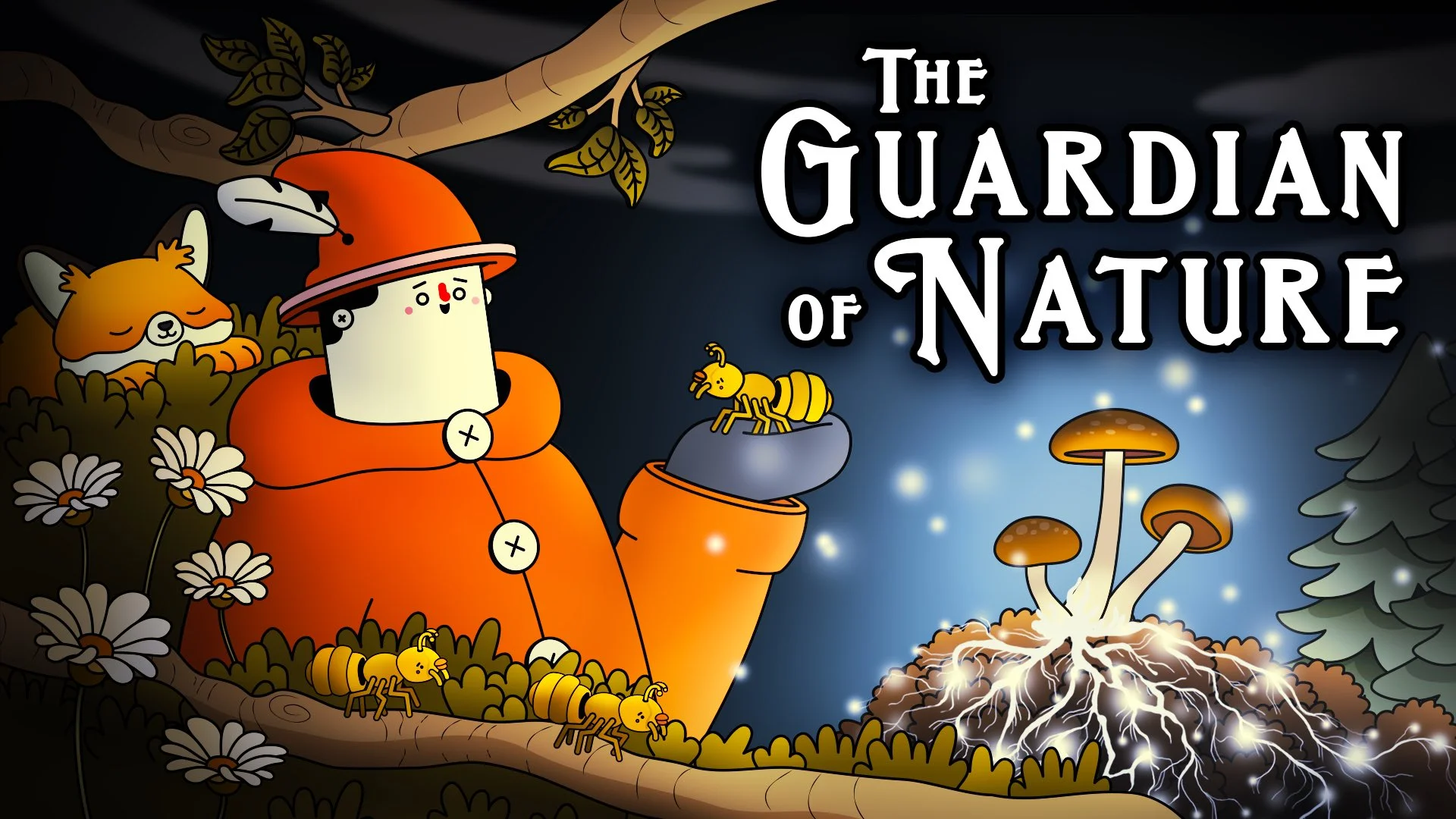Time is Solid Here by AlgebraFalcon is a psychological horror puzzle game set in a liminal space somewhere in the way to the afterlife. Your role is to help four souls process their unfinished business so they can move on. Although it is a short game, its localization was not free of challenges (especially seeing as this was my very first time localizing a game!). It manages to communicate so much within just an hour of gameplay, and the characters’ stories are meaningful and moving.
Translating the title
First, let’s talk about the title: translated literally, it would be “O tempo é sólido aqui”. But the problem is, this doesn’t sound like a title. I’m no marketing expert, but at least I can tell this much. I decided to change it to “Onde o tempo é sólido” ([the place] where time is solid), simply because it sounded better. I guess there’s no concise way to explain the unique perception of whether something sounds natural to a native speaker. Besides, “Onde o tempo é sólido” incites curiosity: just where can time possibly be solid? What does that mean, and what is this mysterious place?
Finding each character’s voice
Upon my first analysis, I concluded that each of the five characters had very distinct backgrounds, and therefore, this should be reflected in their voices. Here they are: Charon - he’s your guide to the underworld. He’s a funny guy (or at least thinks he is) who loves monster trucks, even though he can’t remember how or why he knows so much about them. He’s been there for a long, long time, and the last time he even saw someone else was decades ago.
Ava - a sweet elderly lady with dementia. She wants nothing more than to be with her husband, of whom she has such fond memories. Would you tell her the truth? Eliyas - the husband, who has a very different interpretation of their marriage. He turns out to be extremely abusive and resentful of his wife’s condition, devoting all of his time to create new ways to torture her. The Child - a little boy who misses his mother and just wants someone to play with. He doesn’t understand why his father would give him such an awful fate. The War Veteran - who has a complex set of feelings about his own horrible actions. He’s confined to a bed, and you can choose to show him mercy or leave him to rot.

First of all, let me say that writing natural-sounding dialogue is not a simple thing. Unlike English, the Portuguese language has a very noticeable peculiarity: the way people speak is very different from the way they write. If you speak following perfect grammar, people will think you’re either a) a robot or b) very very old.
This actually comes in handy when you want to emphasize age-related characteristics (such as experience, wisdom, or perhaps the loneliness of having lived long enough to lose your loved ones) as defining aspects of the character. In contrast, if you have a younger character, you might want to use more informal language, in order to make their speech sound more fluid and natural. Take, for example, the word “estou”. It means “I am”, when describing a non-permanent state. In real life, we actually shorten it and say “tô”. Same with “para” becoming “pra”.
I wanted to give the characters unique discourse markers to match their life story and personality. And so, to keep track of each character’s speech style, I devised a table that looked something like this:

I’m not sure how helpful this is if you don’t speak Portuguese, or at least a latin-based language, but there it is. Other strategies to make dialogue sound more natural include exchanging “nós” for “a gente”, “farei” for “vou fazer”, and so on. Essentially, just replicate what you hear people using in real life.
Cultural references
At a certain point, Charon mentions he has no favorite food, because he’s either never had the chance to taste any, or it has been so long since he last had to eat, that he forgot what it’s like. Either way, you are given the task to describe pizza, burgers, meatloaf, dumplings and tacos, so he can decide which one would be his favorite.
Now, pizza and burgers are very common in Brazil. Meatloaf, dumplings and tacos... not so much. I wanted to make sure any Brazilian person could relate to everything in this game. I resorted to making a poll to see how many people I knew had ever eaten meatloaf, dumplings and tacos. I don’t remember the result now, but I do remember that the few ones who knew all three lived in bigger cities. As someone who grew up in a very small town, that bothered me. So, I turned dumplings into sushi, tacos into pastel, meatloaf into feijoada.
Some would say this was an unnecessary change. The translation community doesn’t always agree about the whole foreignization vs. domestication dilemma. Were this game set in a specific geographical location, I could have done things differently; say, if the story was happening in the USA, it would be senseless to domesticate. But this is some bizarre underworld, and as far as I know, it has no borders. The important thing is, I made sure to talk to the dev before making any changes, and he agreed with my solution.
Graphic/interactive elements
There are times when you come across text in a non-editable form, such as graphics. Luckily, AlgebraFalcon was very excited to participate in the localization process, so I indicated to him the correct translations and he recreated the graphics. There are also two instances where you have to type the answer to a charade in order to open a door. This meant that the code had to be changed to accept the translated answer. Again, I communicated this to the dev, and he eagerly made the necessary changes.
By the way, here’s the feedback I got from the dev:
“Bruna has been one of the most kind and hardworking people I have ever had the pleasure of working with. In the process of her translating my game, Time is Solid Here, she has been incredibly vigilant in ensuring that every aspect of my work down to the last detail is not only translated into Portuguese, but wholly understandable to her intended Brazilian audience. She even wrote up a document filled with explanations and insight about specific concepts that couldn't simply be translated directly. Overall I could not recommend her more for translation work of any sort!”
And here’s a comment on the itch.io page that touched my heart:

If you don’t speak Portuguese, it means “thank you so much for the translation, this has become one of my favorite games”. This is exactly why I do what I do.
If you're interested, you can play Time is Solid Here for free on your browser.

